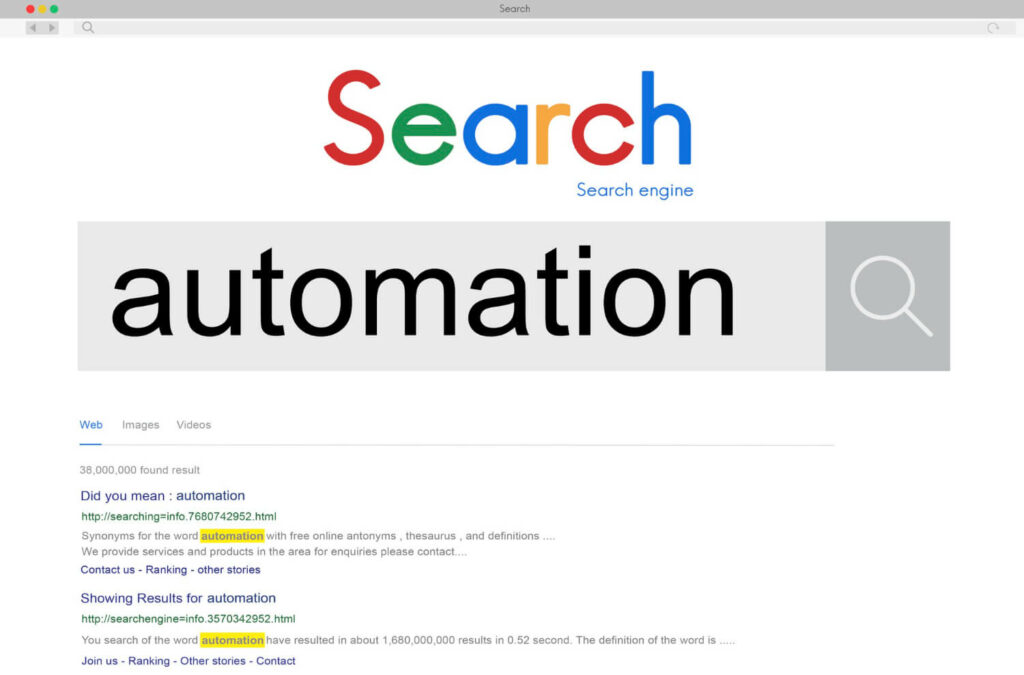If you’re in the accounting business, you know it’s super competitive out there, especially online. But don’t worry, this guide is here to be your friendly companion through the maze of search engine optimization.
Think of SEO for accountants as the secret sauce to getting noticed online by potential clients. We’ll start from the very beginning, breaking down what SEO is and how search engines tick.
Then, we’ll get into the fun stuff—like picking the right keywords that your clients are actually typing into Google, creating content that speaks directly to them, and making sure your website is as neat and navigable as a well-organized ledger.
But that’s not all. We’ll also chat about making sure your website looks great on phones (because who doesn’t do everything on their mobile these days?), using social media to boost your visibility, and getting other websites with high DA to link back to yours. Plus, we’ll cover how to keep an eye on your progress so you can see just how much of a difference these changes are making.
What is SEO and Why is it a Game-Changer for Accountants?
SEO, or Search Engine Optimization, is the process of enhancing your online presence to rank higher on search engine results pages (SERPs). Mastering SEO is akin to unlocking a treasure trove of potential clients. But what exactly is SEO, and why has it become such a game-changer for accountants?
SEO involves optimizing various elements of your website to make it more attractive to search engines like Google but also clients. This includes using the right keywords that potential clients might use to find accounting services, creating high-quality content that addresses their needs, ensuring your site loads quickly and is mobile-friendly, and much more.
The goal? To ensure that when someone searches for accounting services, your firm shows up front and center.
For accountants, like many other businesses, the impact of SEO cannot be overstated. In a world where nearly everyone turns to Google to find answers and services, appearing at the top of search results can significantly increase your visibility.
Increased visibility will give you more website visits, potential client inquiries, and ultimately, more business. In essence, SEO levels the playing field, allowing smaller firms to compete with larger ones for the same online real estate.
How does SEO for Accountants Work and What do They Look for on Accounting Websites?
Understanding how search engines work is necessary for anyone aiming to boost their online presence. Search engines like Google aim to provide users with the most relevant, useful, and authoritative answers to their queries. But how do they determine what’s relevant and authoritative, especially for accounting websites?

Search engines use complex algorithms to crawl the web, indexing the content of each site they find. When a user types a query into a search engine, these algorithms sift through the indexed content to find matches, ranking them based on a multitude of factors. For accounting websites, several key elements are particularly scrutinized.
The most important factor is relevance. Search engines evaluate how well the content on your website matches the query. This is where targeted keyword usage comes into play. By incorporating specific accounting-related keywords and phrases that potential clients might use in their searches, you can signal to search engines that your content is relevant to those queries.
Quality of content is another major factor. Search engines prefer websites that offer valuable, in-depth information that addresses users’ needs. For an accounting website, this could mean detailed blog posts on tax planning, insightful articles on financial strategies, or comprehensive guides on compliance and regulations. High-quality content not only helps improve your rankings but also positions your firm as an authority in the accounting field.
User experience (UX) is as important. Search engines can gauge how user-friendly your website is based on factors like mobile optimization, page load speed, and easy navigation. A website that’s easy to use and accessible across all devices is more likely to rank higher. This is especially important for accountants, as potential clients may seek financial advice or services at any time, from any device.
Trustworthiness and authority are also essential. Search engines look for signals that indicate your website is a credible source of information. This includes backlinks from reputable sites in the accounting or financial industry, secure connections (HTTPS), and clear, professional website design. For accountants, showcasing certifications, professional memberships, and testimonials can also help convey trustworthiness to both users and search engines.
Keyword Research and Selection
Keywords are the terms and phrases that potential clients use when searching for accounting services online. Choosing the right keywords is akin to unlocking the door to high-quality traffic to your website. But how do accountants go about researching and selecting these golden keywords?
The process begins with understanding your target audience. What are the common questions, concerns, and services they are searching for? An accountant might find that potential clients are searching for terms like “best tax preparation service,” “small business accounting advice”, or “estate planning accountant”. These insights help in crafting a list of initial keyword ideas.
Next, it’s time to expand and refine your list using keyword research tools. Tools like Google’s Keyword Planner, SEMrush, or Ahrefs can provide data on search volume, competition, and related queries.

It’s crucial to identify both broad keywords that attract general traffic and long-tail keywords—more specific phrases that may have lower search volumes but higher conversion rates because they align closely with specific client needs.
Understanding the intent behind keywords is also vital. Keywords can be informational (searchers looking for information), navigational (searchers looking for a specific website), transactional (searchers looking to purchase a service), or commercial (searchers considering a purchase and looking for more information).
Focusing on transactional and commercial keywords can be more beneficial, as these are used by searchers ready to engage in an accounting service.
After identifying a robust list of keywords, the selection process involves prioritizing them based on relevance to your services, search volume, and the competition level.
It’s a balancing act; highly competitive keywords might be challenging to rank for without a substantial SEO budget, while niche keywords with low competition could offer quick wins and attract highly targeted traffic.
When you have chosen your keywords, integrate them naturally into your website’s content, meta descriptions, and titles. For accountants, this might mean creating service pages optimized for specific accounting services, writing blog posts that answer common financial questions incorporating target keywords, or updating existing content to include relevant keywords.
Optimizing Your Website’s Structure
Optimizing your website’s structure is a critical aspect of SEO that goes beyond just the aesthetics of your site—it’s about making your website more accessible and understandable to both search engines and users. A well-structured website can be the difference between appearing at the top of search results or getting lost in the digital shuffle. But what does it mean to optimize your website’s structure, and how can you do it effectively?
At its core, website structure optimization involves organizing your site’s content in a logical and intuitive manner. This means having a clear hierarchy that guides visitors seamlessly from one page to another, facilitating a smooth and engaging user experience.
For an accounting firm, this could involve categorizing services into easily navigable sections, such as tax preparation, financial planning, and business consulting, each with its own dedicated page.
A crucial element of optimizing your website’s structure is implementing a clear and consistent navigation menu. This menu should highlight the key areas of your site, allowing visitors to quickly find the information they’re looking for. Including a search bar can further enhance usability, especially for users who come with specific queries in mind.
URL structure also plays a significant role in optimization. URLs should be clean, and descriptive, and include relevant keywords where possible.
A URL like “www.yoursite.com/tax-preparation-for-small-businesses” is far more effective than a generic or overly complex URL. Such structured URLs not only help search engines understand and rank your pages but also improve the user experience by clearly indicating what the page is about.

Internal linking is another important factor. By linking related content within your site, you can guide visitors to additional relevant information, increasing the time they spend on your site and reducing bounce rates.
This could mean linking a blog post about tax-saving strategies to your tax preparation services page, creating a cohesive and informative journey for the visitor.
Ensuring your website is mobile-friendly is non-negotiable in today’s mobile-first world. A responsive design that adjusts to different screen sizes and a mobile-friendly navigation menu are essential components of a well-structured website.
Local SEO Tactics for Accounting Firms
When we talk about local SEO for accounting firms, it’s all about making sure your firm pops up first when someone in your area types “accountants near me” into their search engine. Imagine you’re the go-to person in your neighborhood for anything numbers-related; that’s what local SEO can do for your online presence.
First off, let’s talk about Google My Business (GMB). It’s like the digital version of those big, bulky phone books from back in the day. Setting up your GMB profile is like putting a giant signpost on the internet highway saying, “Hey, we’re here, and we’re great with numbers!”
Make sure your profile is complete with all the necessary details: your firm’s name, address, phone number, and hours of operation. And photos! Don’t forget to add some professional images of your office. It makes everything feel more personal and inviting.
Next up, let’s chat about reviews. In the digital age, word of mouth has gone online, and reviews are its currency. Encouraging your happy clients to leave positive feedback online is like collecting gold stars. These reviews not only boost your local SEO rankings but also build trust with potential clients who are reading about you for the first time.
Keywords are also a big player in the local SEO game. But we’re not just throwing around generic terms like “accountant.” We’re getting specific with phrases like “accountant in [Your City]” or “best tax preparation service in [Your Neighborhood].” This way, when locals are searching for accounting services, your firm stands out because you’re speaking directly to them.
And let’s not forget about local directories and community involvement. Being listed in local online directories helps improve your visibility. And participating in community events or sponsoring local teams? That’s a great way to get your name out there and generate some buzz around your firm, both online and off.
Building Backlinks to Your Accounting Website
Let’s chat about something that might sound a bit techy but is super important for your accounting firm’s website: building backlinks. Now, imagine backlinks as digital thumbs-ups from other websites.
It’s like saying, “Hey, we think this accounting website knows what they’re talking about!” The more thumbs-ups you get, the more search engines like Google think you’re the go-to expert in accounting.

But how do you get these digital thumbs-ups? It’s not just about asking everyone and anyone to link to your site. Quality matters a lot. Think of it as getting a recommendation. You’d want it from someone respected and trusted, right? The same goes for backlinks.
One great way is to create content that’s so useful and insightful that other sites can’t help but share it. Whether it’s a blog post on tax-saving tips or an infographic on how to manage small business finances, make it something others find valuable.
Another cool tactic is to participate in community events or sponsor local activities. This often gets local news outlets or community websites to mention and link back to your site. And don’t forget about partnerships. Collaborating with other businesses or local chambers of commerce can lead to mutual backlinking, which is a win-win.
But remember, it’s not just about getting those links; it’s about maintaining a reputation. Engage in ethical SEO practices. Buying links or getting them from sketchy sites can do more harm than good. Think of your website’s backlink profile as your online reputation. You want it to reflect the quality and integrity of your accounting firm.
Measuring Your SEO Success: Analytics and Tools
Imagine you’ve been working hard on your SEO game, sprinkling those keywords like magic dust, and building those digital bridges with backlinks. Now, it’s time to see if all that effort is paying off!
Why should you be keeping an eye on your SEO performance? It’s like having a fitness tracker when you’re on a health kick. You want to know if all those morning jogs and salad lunches are helping you reach your goals, right?
The same goes for SEO. You want to see how your strategies are impacting your website’s visibility, traffic, and ultimately, client conversions.

Google Analytics is the big kahuna of the SEO measurement tools. It can tell you which of your pages are the most popular and how visitors are navigating through your site. Super useful for understanding what’s working and what’s not.
Google Search Console is another gem that lets you peek into how Google views your site. It shows you which keywords are getting you noticed and flags up any issues that might be keeping your site from reaching its full potential.
For those who love to get into the nitty-gritty, SEMrush and Ahrefs are some of the best SEO tools. They’re about exploring new opportunities and spying on your competitors (in a totally legit way, of course). You can see which keywords they’re ranking for and discover new backlink opportunities.
Common SEO Mistakes to Avoid for Accountants
Let’s chat about something that might hit a bit close to home: common SEO mistakes that accountants often stumble upon. It’s like going through a tax audit; you might not look forward to it, but addressing these can really set you up for success!
The most common mistake is overlooking the power of local SEO. Imagine you’re the best accountant in town, but if you’re not optimizing for local search, it’s like you’re invisible. Not being visible in local search results is like hiding your shingle in a digital closet. So, make sure your business is listed on Google My Business and that your contact information is consistent across the web. Think of it as claiming your territory online.
Then there’s the keyword conundrum. Either going too broad or too narrow with keywords is like trying to catch fish with either a net that’s too big or too small. You end up missing the catch!
It’s crucial to find that sweet spot – using specific enough keywords that potential clients are searching for but not so niche that you’re only reaching a handful of people. Long-tail keywords are your friends here, like “small business accountant in [Your City]” instead of just “accountant.”
Another common slip-up? Ignoring the mobile users. If your website looks like a jumbled mess on a smartphone screen, you might as well be invisible. Mobile optimization is a must. Make sure your website is responsive and easy to navigate on all devices.
Content is king, but stale content is definitely not. If the last blog post you published was about “New Tax Laws for 2015,” it’s time for an update. Keeping your site fresh with regular, relevant content is like keeping your storefront inviting and lively. It shows search engines and potential clients that you’re active, knowledgeable, and engaged with current trends and regulations.
Underestimating the importance of analytics is like sailing without a compass. You might eventually get somewhere, but it won’t be where you intended. Tools like Google Analytics are for anyone who wants to understand how visitors interact with their site and how to improve their online presence.
Invest in a Good Accounting Firm Search Engine Optimization Firm
Now, SEO isn’t just a set-it-and-forget-it kind of deal. It’s more like tending to a garden. Just when you think everything’s growing smoothly, the seasons change, and you’ve got to adapt your strategies to ensure your garden continues to flourish.
Staying ahead in SEO means being ready to pivot and embrace change. Search engines like Google are always tweaking their algorithms to better match user intent, which means what worked yesterday might not work tomorrow. Staying informed and flexible is key.
Now, let’s talk about a game-changer: Global Newsly’s SEO content service. We are the perfect accounting firm search engine optimization company whose team will tailor SEO-optimized content specifically for your accounting firm but also keep an eagle eye on the competition to ensure you’re always a step ahead.
Global Newsly doesn’t just write content; it strategizes, analyzes, and optimizes to ensure that your firm stands out in the crowded digital landscape.
But why is this service a cut above the rest? For starters, it’s not just about stuffing articles with keywords. It’s about creating valuable, engaging content that speaks directly to your potential clients’ needs and questions.
This approach helps establish your firm as an authority in the accounting world, building trust with your audience. Plus, Global Newsly’s commitment to staying on top of SEO trends means they’re always adjusting tactics to keep your content fresh and visible.
Adapting to SEO changes requires a proactive mindset. It’s about continuously learning, experimenting, and refining your strategies.




